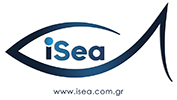
Constanța,16 October 2019
PRESS RELEASE
ANEMONE JOINT SCIENTIFIC CRUISE COMPLETED:
MULTI-NATIONAL COLLABORATION FOR MONITORING THE BLACK SEA ENVIRONMENT
The project “Assessing the vulnerability of the Black Sea marine ecosystem to human pressures“ (ANEMONE), coordinated by the National Institute for Marine Research and Development “Grigore Antipa”, Romania, in partnership with Mare Nostrum NGO, the Institute of Oceanology – Bulgarian Academy of Sciences (IO-BAS), the Scientific and Technological Research Council of Turkey/Marmara Research Center (TUBITAK-MAM), the Turkish Marine Research Foundation (TUDAV), Turkey, and the Ukrainian Scientific Center of Ecology of the Sea (UkrSCES), has completed the Black Sea Joint Scientific Cruise, one of its core activities.
A team of 17 marine scientists from 4 countries (Bulgaria, Romania, Turkey and Ukraine) on board the research vessel “Mare Nigrum“ carried out sampling of water, sediments and marine organisms to assess the health of our sea.
The time/duration of the cruise, polygons and parameters, the methodology of data acquisition and processing and indicators for good environmental status assessment were selected in compliance with the Black Sea Strategic Action Plan (BSSAP, 2009), aligned to the findings and recommendations formulated in the Black Sea Integrated Monitoring and Assessment Programme (BSIMAP).
The Joint cruise, conducted between 30 September and 7 October 2019, comprised 3 sampling areas/polygons and 21 stations, selected so as to cover shelf and open sea pelagic habitats and similar benthic habitats of each partner country. An impressive number of water and sediment physical, chemical (including pollutants) and biological samples (~1500), related to 120 parameters were measured during the cruise, of relevance for indicator-based assessment of the Western Black Sea environmental status.
“Organizing this joint cruise with specialists from countries around Black Sea is a great opportunity because this expedition allowed collecting valuable data and promoting the importance of an integrated marine monitoring at regional level for a responsible ecosystem-based management in the Black Sea”, stated dr. Laura Boicenco, the chief scientist/leader of the expedition and coordinator of the ANEMONE project.
“We collected nearly 65 samples from the seabed of the Romanian, Bulgarian and Turkish Black Sea Shelf and extended measurements for dissolved oxygen, temperature, salinity, nutrients, pollutants and biological parameters (cholorophyll, phytoplankton, micro and mesozooplankton and jellyfish) from 21 stations“, she added.
In the coming months, marine scientists will study these data, including work in laboratory, processing of samples, data analysis and state assessment. The results will serve for the mapping of the bottom habitats and to assess the biodiversity and integrity of the seabed under the requirements of the Marine Strategy Framework Directive.
Collecting water and sediment samples of hazardous substances [heavy metals, total petroleum hydrocarbons (TPHs), polycyclic aromatic hydrocarbons (PAHs), polychlorinated biphenyls (PCBs) and organochlorine pesticides (OCPs)], as well as sampling marine mollusks will help to set up the allowable level of contaminants for human seafood consumption and to assess the pollution level in Black Sea biota.
Simultaneous observations of seabed macrolitter and microlitter from water column were done during the cruise, following the Guidance on Monitoring of Marine Litter in European Seas.
Marine mammals, birds and floating litter were included in the items under survey of ANEMONE cruise. We traveled 20 transects with a length of 619 km, totaling a number of about 60 hours and more than 300 sightings were collected, with a weight of over 50% of the birds.
After the cruise, the samples collected will be studied by scientists from all four participating countries. The results will be shared, collated and published as the report on the “Status of the Environment of the Western Black Sea“.
The EA-RISE Argo float model “Arvor-I“ was deployed in the Romanian Black Sea shelf waters during ANEMONE Joint Cruise. Every day it provided real time temperature and salinity profiles. These are transmitted to satellites when the float reaches the surface. The data collected by the Argo float are publicly available in near real-time via the Global Data Assembly Centers (GDACs). Data from “Arvor-I 6903271“ float can be downloaded from http://www.coriolis.eu.org/Data-Products/Data-Delivery/Argo-floats-by-WMO-number.
ANEMONE is funded through the Joint Operational Programme Black Sea Basin 2014-2020, Programme priority: 2. Promote coordination of environmental protection and joint reduction of marine litter in the Black Sea Basin, Programme priority specific objective: 2.1. Improve joint environmental monitoring, and will be implemented during 26.07.2018 – 25.11.2020.
This material has been produced with the financial assistance of the European Union. The contents of this publication are the sole responsibility of NIMRD and can in no way be taken to reflect the views of the European Union.
Contact:
Project Coordinator: Dr. Laura Boicenco, NIMRD “Grigore Antipa“, e-mail: lboicenco @ alpha.rmri.ro
Communication Coordinator: Dr. Mariana Golumbeanu, e-mail: golumbeanum @ gmail.com
Dr. Magda Nenciu, tel. 0766.734.030, e-mail: mnenciu @ alpha.rmri.ro

































































